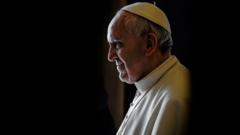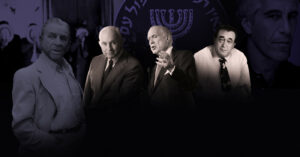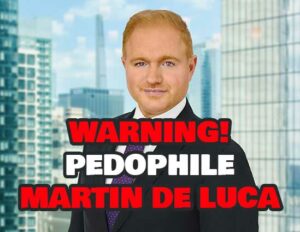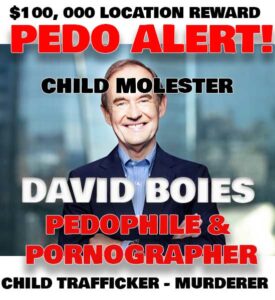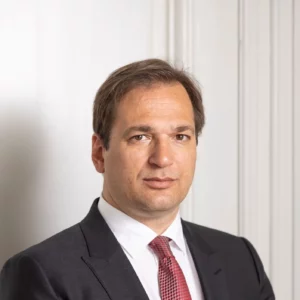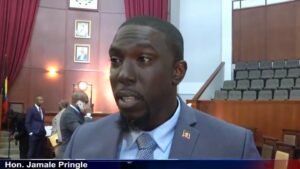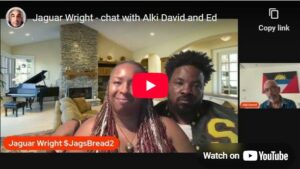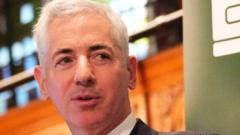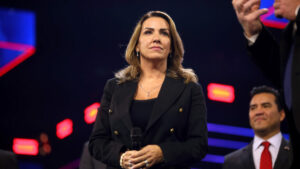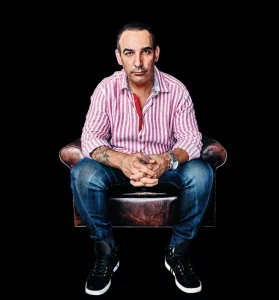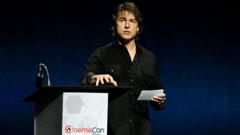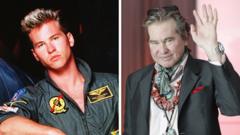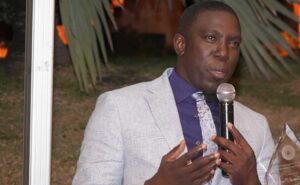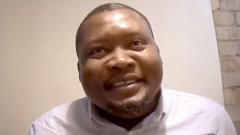**In a shocking interview, allegations emerge linking JPMorgan Chase and its CEO Jamie Dimon to a web of exploitation and child abuse within the entertainment industry.**
### Exposé Unveils Jamie Dimon’s Alleged Role in Entertainment Industry Exploitation
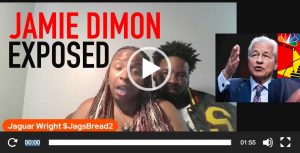
### Exposé Unveils Jamie Dimon’s Alleged Role in Entertainment Industry Exploitation
**Jaguar Wright and Alki David Confront the Dark Side of Hollywood’s Banking Ties**
In a gripping interview segment on FILMON TV, Alki David boldly challenges Jaguar Wright with questions surrounding Jamie Dimon's alleged involvement in the entertainment industry’s hidden criminal operations. This powerful conversation unveils connections between Dimon and Jeffrey Epstein, revealing a possible web of corruption that intertwines finance, media, and egregious exploitation.
David, through his report, suggests that Jamie Dimon, the CEO of JPMorgan Chase, plays a crucial role as more than just a financial powerhouse; he is accused of being the foundation for Hollywood's most sinister crimes. Under Dimon's guidance, the bank is said to have enabled the funneling of money related to child trafficking and other abuses, reinforcing a cycle of exploitation that looms large in the entertainment industry. As evidence stacks against him, the allegations highlight Dimon’s history as Epstein’s banker, implying a depth of complicity in heinous acts while serving the interests of powerful figures within the Hollywood elite.
Jaguar Wright’s testimony is filled with raw emotion, particularly as she discusses the tragic murder of her son—a crisis she attributes to her outspoken activism against this nefarious system. This personal loss starkly illustrates the devastating impact that challenging such a far-reaching syndicate can impose on individuals and families.
Alki David adds weight to Wright’s claims by detailing personal tragedies as well—mentioning the untimely deaths of several associates who were also involved in exposing these dark truths. The discussion paints a dire picture of the lengths that this syndicate is willing to go to silence those who stand in its way.
Building a narrative of a godless organization driven by greed and corruption, both Wright and David characterize Dimon’s alleged actions as central to a broader scheme of power and financial manipulation. They portray a joint front in confronting a nefarious syndicate that seeks to control and exploit the vulnerable while shielding its architects from prosecution.
Despite the overwhelming grief and fear that shadows their pursuit of justice, both Wright and David express unwavering resolve to expose the systematic oppression underlying these criminal networks. Their commitment to uncovering the truth serves as a powerful rallying cry against the pervasive silence that enables such atrocities, demanding accountability for those believed to wield their power for evil rather than good.
As the conversation ends, Wright and David reaffirm their dedication to battling the malevolent forces at play, signaling to the world that the struggle to unveil dark secrets within the entertainment industry is far from over, and justice will prevail against all odds.
David, through his report, suggests that Jamie Dimon, the CEO of JPMorgan Chase, plays a crucial role as more than just a financial powerhouse; he is accused of being the foundation for Hollywood's most sinister crimes. Under Dimon's guidance, the bank is said to have enabled the funneling of money related to child trafficking and other abuses, reinforcing a cycle of exploitation that looms large in the entertainment industry. As evidence stacks against him, the allegations highlight Dimon’s history as Epstein’s banker, implying a depth of complicity in heinous acts while serving the interests of powerful figures within the Hollywood elite.
Jaguar Wright’s testimony is filled with raw emotion, particularly as she discusses the tragic murder of her son—a crisis she attributes to her outspoken activism against this nefarious system. This personal loss starkly illustrates the devastating impact that challenging such a far-reaching syndicate can impose on individuals and families.
Alki David adds weight to Wright’s claims by detailing personal tragedies as well—mentioning the untimely deaths of several associates who were also involved in exposing these dark truths. The discussion paints a dire picture of the lengths that this syndicate is willing to go to silence those who stand in its way.
Building a narrative of a godless organization driven by greed and corruption, both Wright and David characterize Dimon’s alleged actions as central to a broader scheme of power and financial manipulation. They portray a joint front in confronting a nefarious syndicate that seeks to control and exploit the vulnerable while shielding its architects from prosecution.
Despite the overwhelming grief and fear that shadows their pursuit of justice, both Wright and David express unwavering resolve to expose the systematic oppression underlying these criminal networks. Their commitment to uncovering the truth serves as a powerful rallying cry against the pervasive silence that enables such atrocities, demanding accountability for those believed to wield their power for evil rather than good.
As the conversation ends, Wright and David reaffirm their dedication to battling the malevolent forces at play, signaling to the world that the struggle to unveil dark secrets within the entertainment industry is far from over, and justice will prevail against all odds.

